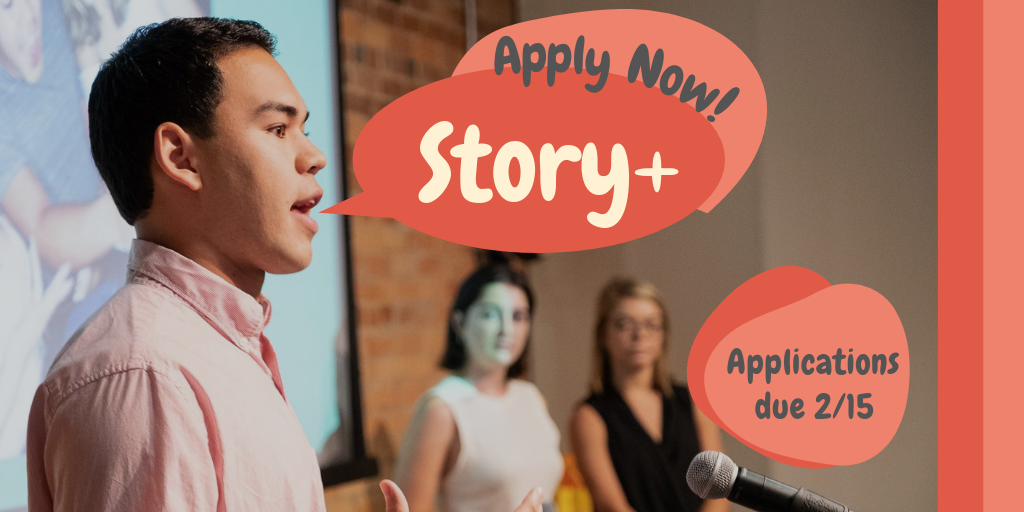Spend Your Summer Bringing Research to Life with Story+

How do we tell compelling stories about complex historical, cultural and social realities? What goes into creating great stories that stay with the audience, and even change minds?
Story+ is a six-week summer research experience for undergraduate and graduate students interested in bringing academic research to life through dynamic storytelling.
Applications for 2019 Story+ projects are now open. Students can apply through the Story+ Student Application Portal. The priority deadline for all students is February 15.
Story+ is offered through the Franklin Humanities Institute and Bass Connections, with support from Versatile Humanists at Duke and Duke Libraries. It is open to:
- All undergraduates, except graduating seniors
- All graduate students, with preference given to doctoral students in the humanities and interpretive social sciences.
How Story+ Works
Undergraduates work in small teams with graduate student mentors on projects that contribute to the broader research, teaching, scholarly communications and/or public engagement agendas of Duke faculty, Duke librarians, nonprofit organizations and other project sponsors.
Students learn to conduct qualitative, humanities-based research, including archival research, narrative and visual analysis, oral history, ethnography and more, and learn to communicate their research through effective storytelling techniques. Final projects may take the form of writing, websites, exhibits, short films or other genres, depending on the project’s goals.
Story+ will take place during Summer Session 1. Undergraduates will receive up to $3,000 to defray housing and living expenses (please note that amounts may vary for projects with off-campus components). Graduate students can receive a stipend or travel support up to $2,500.
Explore the 2019 Story+ Projects
- #MyVoiceMyBody: Minoritized Bodies in the Pulpit at Duke Chapel: Uncover hidden stories of female and female-identifying preachers at the Duke Chapel.
- 23 and We: Stories of Race in Genetic Ancestry Testing Advertisements: Conduct visual content analysis of racial markers in public advertising for genetic ancestry testing.
- Beyond Despair: Narrating the Environment through the Humanities: Help create a podcast series that focuses on critical environmental issues and the role the humanities can play in understanding and galvanizing action to help solve these issues.
- Consuming Women, Liberating Women: Create an online library guide that illustrates the experiences of women during the postwar economic boom, the rise of consumer citizenship and the emergence of “Second Wave” feminism.
- Photographic Life of Harriet: Tubman’s Life in Pictures: Help organize a digital archive representing the visual life of abolitionist Harriet Tubman.
- Pirating Texts: From Robinson Crusoe to Cast Away, Tracking the Myth of Crusoe from Slave Trade Propaganda to Children’s Animation: Use data and visualizations to tell the story of the publication of Crusoe, which has amassed over 13,000 different editions spread throughout the world.
- Stained University: Duke’s Intertwined History of Tobacco and Modernist/Colonial Individualism: Research the “stained” history of Duke University and the tobacco industry to create a public history exhibit.
- Teaching Duke History: Develop a syllabus and associated class materials, learning activities and assignments for a 12-week house introductory course on Duke history.
- The Other Side of Hungry River: Mental Illness Mapped through Songs: Contribute to the development of a web-based, site-specific, mobile app exhibition that places archival materials and untold stories back at their sites of origin on Raleigh’s Dorothea Dix Hill.
- Understanding Social Media as a Narrative Tool in Student Activism: Use Twitter to tell and un-tell social media stories.
Learn More
- Watch a video about Story+, and learn about the undergraduate student and graduate mentor experience.
- Consider other Bass Connections summer programs, such as Data+.
- Browse the 2018-19 Bass Connections project teams, and apply by February 15 at 5:00 p.m.